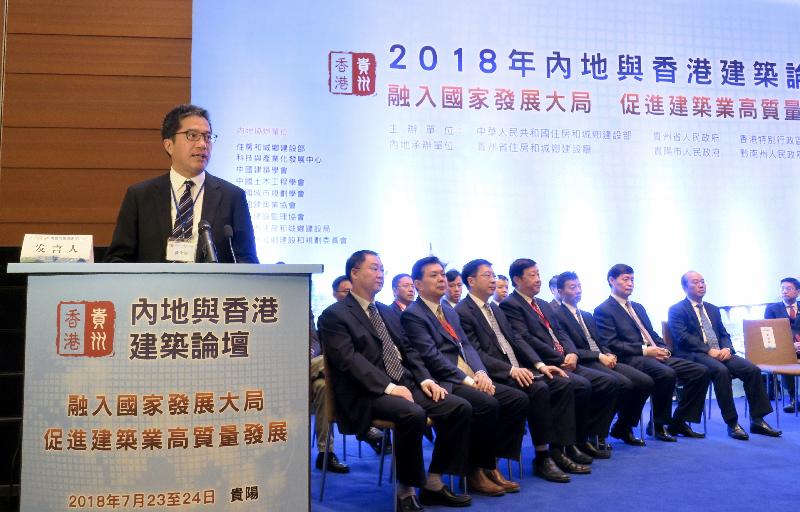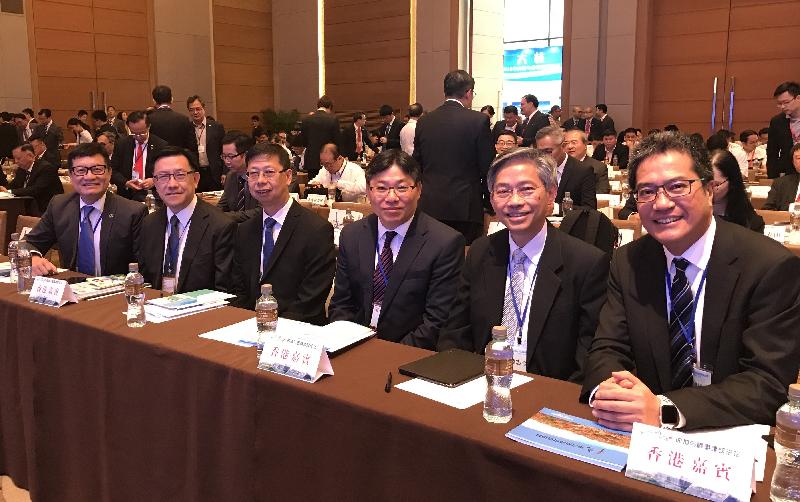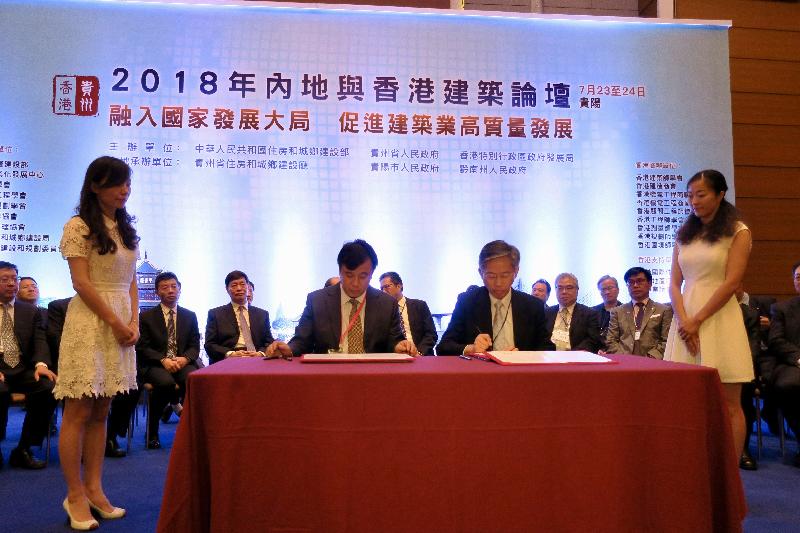SDEV attends 2018 Mainland and Hong Kong Construction Forum in Guiyang (with photos)
The Secretary for Development, Mr Michael Wong, today (July 23) led a delegation from Hong Kong to attend the 2018 Mainland and Hong Kong Construction Forum in Guiyang.
The forum is jointly organised by the Ministry of Housing and Urban-Rural Development, the Guizhou Provincial People's Government and the Development Bureau. The theme of this year's forum is "Integrating into the Development of the Country, Facilitating High-quality Development of the Construction Industry".
Speaking at the opening ceremony, Mr Wong said that the infrastructure projects under the Belt and Road Initiative are of considerable scale and present vast business opportunities to the construction industry and the related professional services sector. The Development Bureau and the construction industry have all along been promoting the construction enterprises in Hong Kong and the Mainland to "go global" and to combine the strengths of both places to open up the overseas markets.
Mr Wong said that this year's forum covers a wide variety of topics such as building design, project management, innovative building technology and green buildings. He expressed the hope that the forum could serve as a platform to foster exchanges and experience sharing and strengthen co-operation between Hong Kong and the Mainland.
Prior to the forum, Mr Wong and industry representatives from Hong Kong met with leaders of the Ministry of Housing and Urban-Rural Development and the Guizhou Provincial People's Government. The Development Bureau also signed a collaboration agreement with the Department of Housing and Urban-Rural Development of Guizhou Province to strengthen mutual co-operation in the construction industry.
The Hong Kong delegation to the forum comprises about 150 members including representatives of the construction industry, related trade associations and professional institutions as well as the construction industry. It also includes legal professionals and member of the Legislative Council Mr Tony Tse.
Others representing the Hong Kong Special Administrative Region Government at the Forum include the Permanent Secretary for Development (Works), Mr Hon Chi-keung; the Director of Civil Engineering and Development, Mr Lam Sai-hung; the Director of Water Supplies, Mr Wong Chung-leung; the Director of Architectural Services, Mrs Sylvia Lam; the Director of Drainage Services, Mr Edwin Tong; the Director of Electrical and Mechanical Services, Mr Alfred Sit; and the Deputy Secretary for Development (Works), Mr Francis Chau. Mr Hon will deliver a speech tomorrow (July 24) at the closing ceremony of the forum.
Mr Wong will return to Hong Kong tonight.


